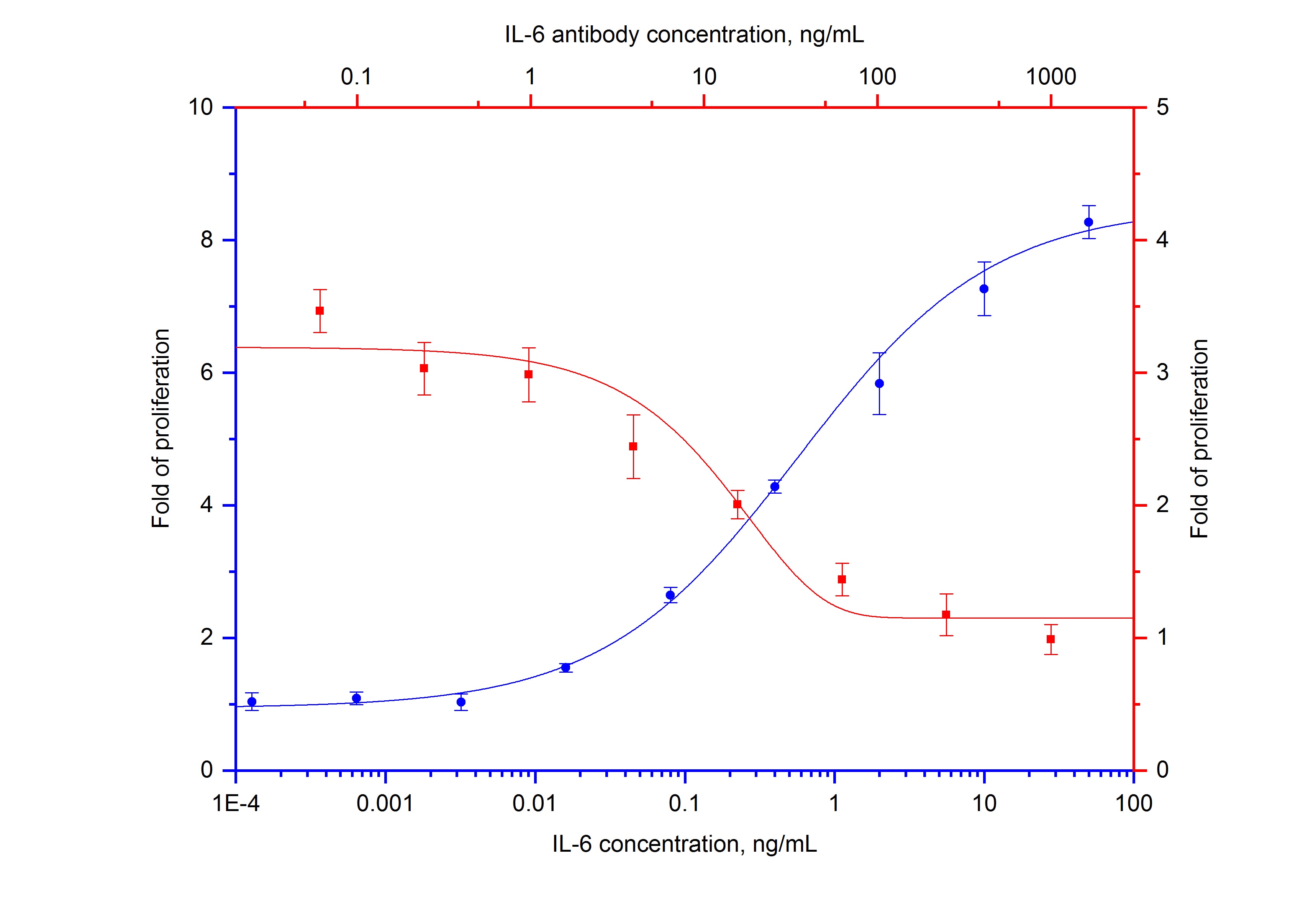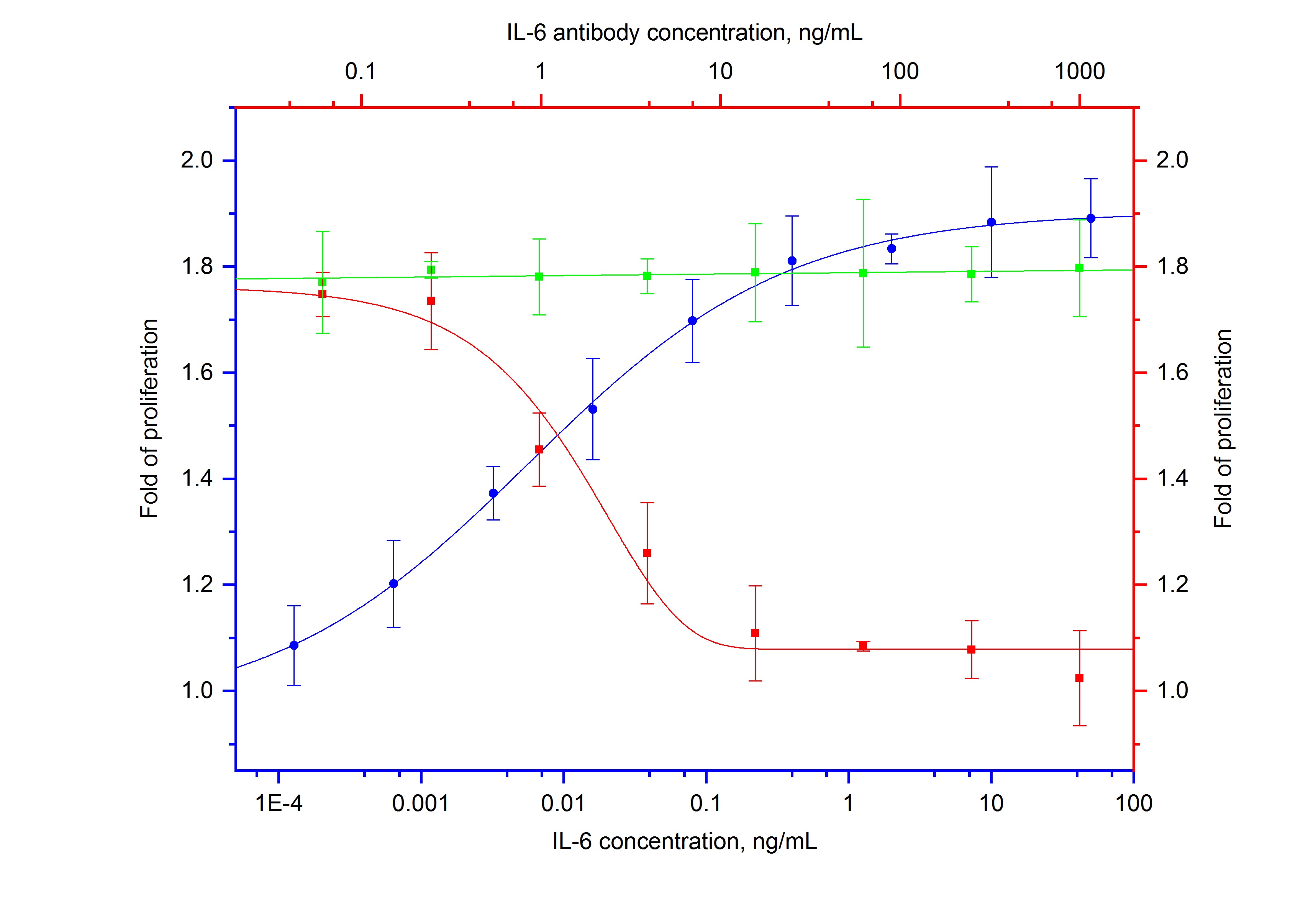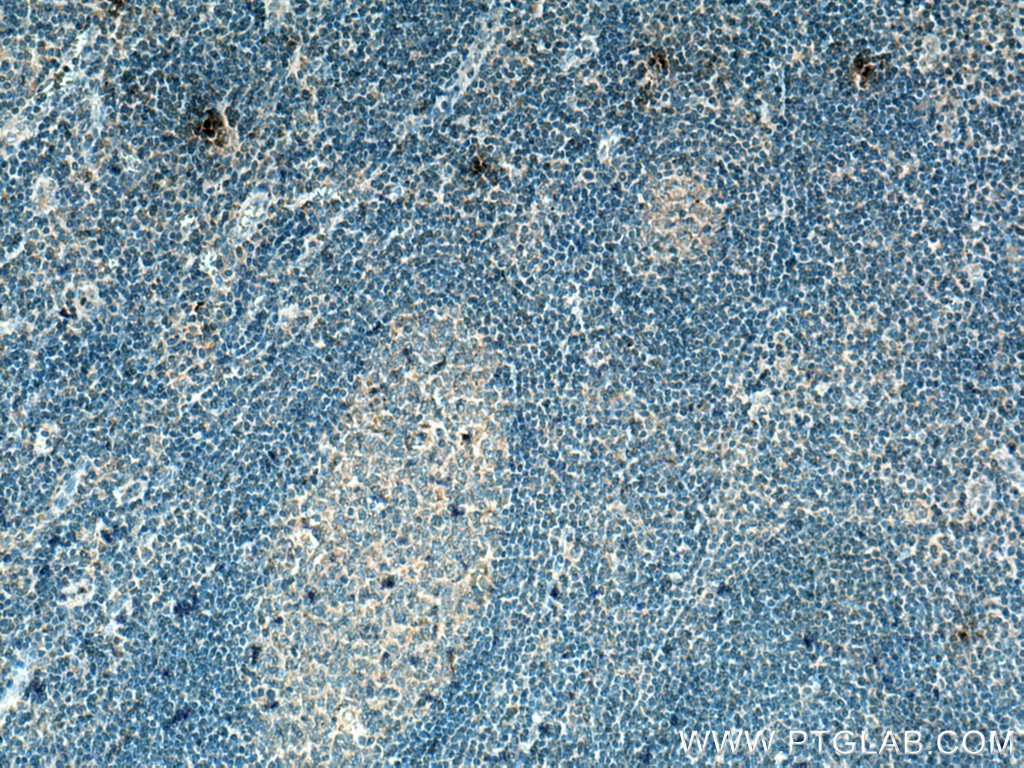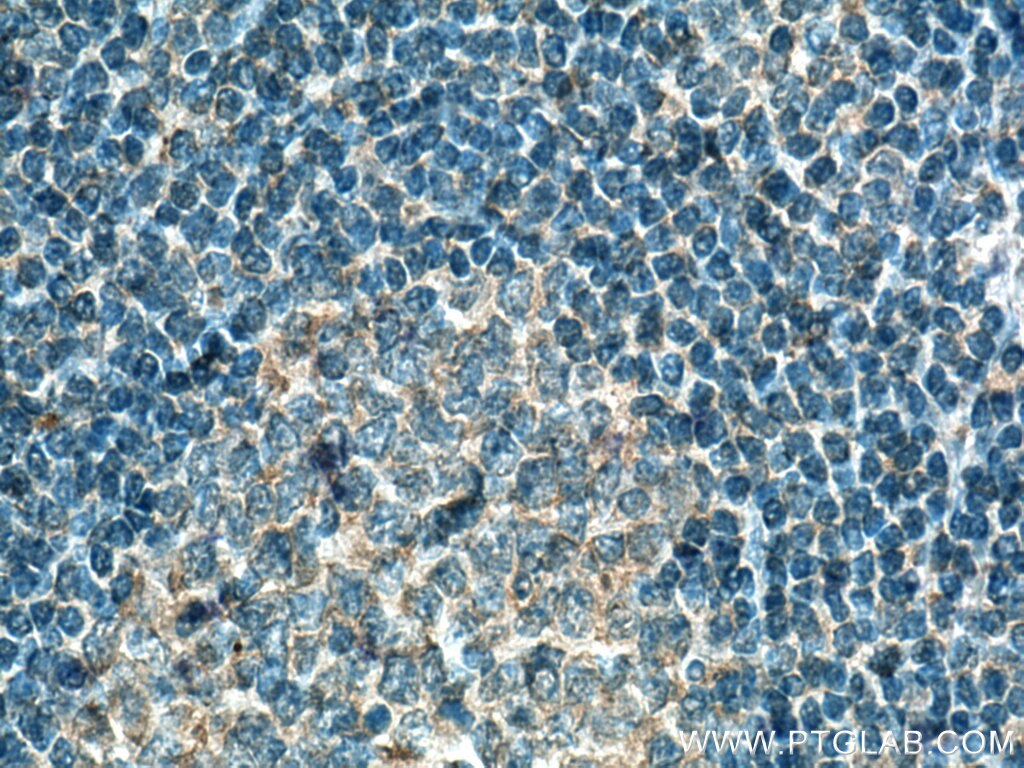Anticorps Monoclonal anti-NeutraKine® IL-6
NeutraKine® IL-6 Monoclonal Antibody for IHC, Neutralization, ELISA
Hôte / Isotype
Mouse / IgG1
Réactivité testée
Humain
Applications
IHC, Neutralization, ELISA
Conjugaison
Non conjugué
CloneNo.
4G3E6
N° de cat : 69001-1-PBS
Synonymes
Galerie de données de validation
Informations sur le produit
69001-1-PBS cible NeutraKine® IL-6 dans les applications de IHC, Neutralization, ELISA et montre une réactivité avec des échantillons Humain
| Réactivité | Humain |
| Hôte / Isotype | Mouse / IgG1 |
| Clonalité | Monoclonal |
| Type | Anticorps |
| Immunogène | human Humankine IL-6 protein HZ-1019 |
| Nom complet | interleukin 6 (interferon, beta 2) |
| Symbole du gène | IL6 |
| Identification du gène (NCBI) | 3569 |
| Conjugaison | Non conjugué |
| Forme | Lyophilized Powder |
| Méthode de purification | Purification par protéine G |
| Tampon de stockage | PBS only |
| Endotoxin | <0.1 EU/μg |
| Reconstitution | This product was lyophilized from a 0.2 μm filtered solution in PBS. Reconstitute at 1.0 mg/mL in sterile H2O before use. |
| Stability and Storage | Lyophilized antibodies are stable for 1 year from the date of receipt if stored between (-20°C) and (-80°C). Upon reconstitution we recommend that the solution can be stored at (4°C) for short term or at (-20°C) to (-80°C) for long term. Repeated freeze thaw cycles should be avoided with reconstituted products. |
Informations générales
Interleukin-6 (IL-6) is an interleukin that acts as both a pro-inflammatory and anti-inflammatory cytokine. IL-6 protein is secreted by a variety of cell types including T cells and macrophages as phosphorylated and variably glycosylated molecule. IL-6 plays an essential role in the final differentiation of B-cells into Ig-secreting cells involved in lymphocyte and monocyte differentiation. It induces myeloma and plasmacytoma growth and induces nerve cells differentiation Acts on B-cells, T-cells, hepatocytes, hematopoietic progenitor cells and cells of the CNS. IL-6 is also considered a myokine, a cytokine produced from muscle, and is elevated in response to muscle contraction. IL-6 has been shown to interact with interleukin-6 receptor and glycoprotein 130. Additionally, IL-6 is involved in hematopoiesis, bone metabolism, and cancer progression, and has been defined an essential role in directing transition from innate to acquired immunity.
This antibody can be used to neutralize the bioactivity of IL-6.









